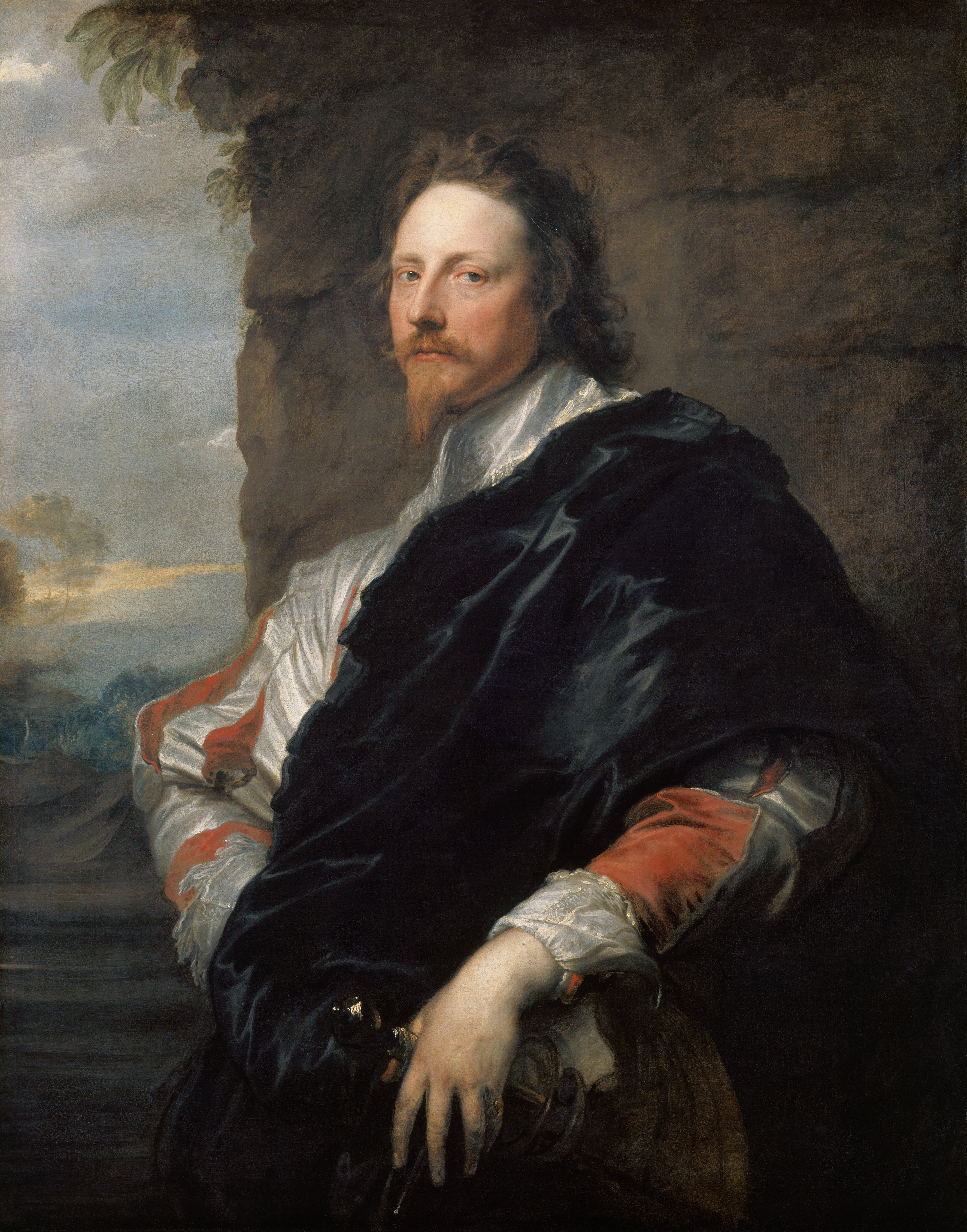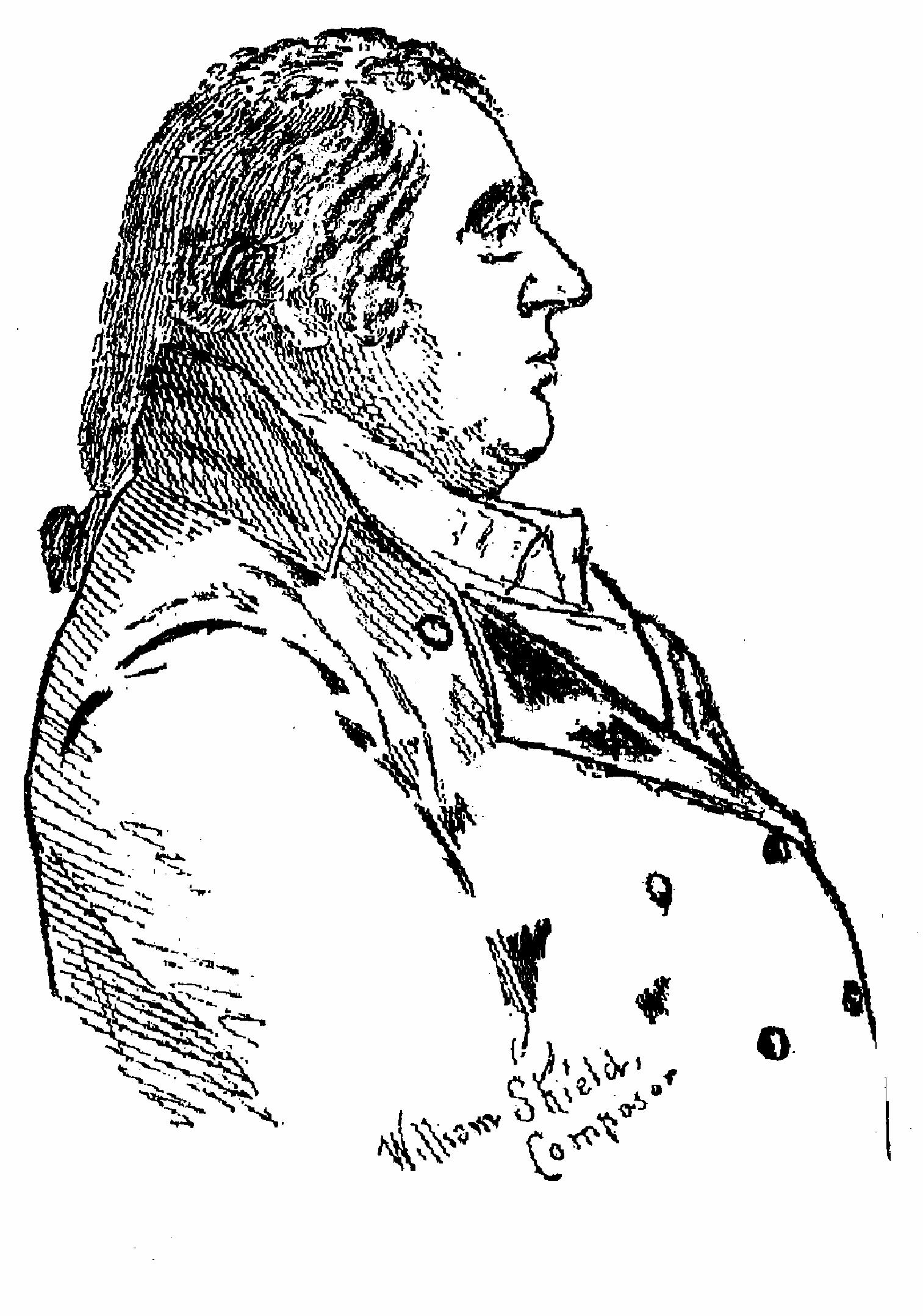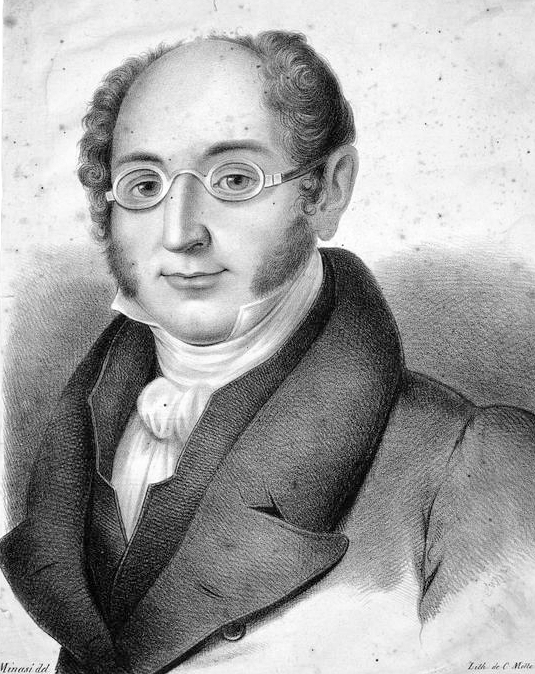|
Christian Kramer
Christian Kramer (died 1834) was a composer, arranger, musician and Master of the King's Musick between 1829 and 1834. He served under two British kings; George IV and William IV. Kramer was born in Hannover and was a pupil of Romantic composer Peter Winter. He became a court musician, eventually rising to lead George IV's personal orchestra ("band") which, according to ''Dwight's Journal of Music'' was "in its time acknowledged to be one of the best in Europe".John Sullivan Dwight, ''Dwight's Journal of Music'' Volumes 7-8 (D.L. Balch, 1856) 26 Notably, many of the musicians in his band were sourced from Germany. John Dwight goes on to note that he could play all of the instruments in his orchestra to a remarkable degree. ''A Dictionary of Musical Information'' of 1876 notes that he was "a composer of great ability", John Weeks Moore, ''A Dictionary of Musical Information'' (Ayer Publishing, 1876) 44 although none of his compositions have remained in the repertoire. He was apparent ... [...More Info...] [...Related Items...] OR: [Wikipedia] [Google] [Baidu] |
Master Of The Queen's Music
Master of the King's Music (or Master of the Queen's Music, or earlier Master of the King's Musick) is a post in the Royal Household of the United Kingdom. The holder of the post originally served the monarch of England, directing the court orchestra and composing or commissioning music as required. The post is broadly comparable to that of poet laureate. It is given to people eminent in the field of classical music; they have almost always been composers. Duties are not clearly stated, though it is generally expected the holder of the post will write music to commemorate important royal events, such as coronations, birthdays, anniversaries, marriages and deaths, and to accompany other ceremonial occasions. The individual may also act as the sovereign's adviser in musical matters. Since 2004 the appointment has been for a fixed term of ten years rather than for life, as previously. The King's Musick In the 14th century professional music-making in England was theoretically regula ... [...More Info...] [...Related Items...] OR: [Wikipedia] [Google] [Baidu] |
George IV Of The United Kingdom
George IV (George Augustus Frederick; 12 August 1762 – 26 June 1830) was King of the United Kingdom of Great Britain and Ireland and King of Hanover from the death of his father, King George III, on 29 January 1820, until his own death ten years later. At the time of his accession to the throne, he was acting as Prince Regent, having done so since 5 February 1811, during his father's final mental illness. George IV was the eldest child of King George III and Queen Charlotte. He led an extravagant lifestyle that contributed to the fashions of the Regency era. He was a patron of new forms of leisure, style and taste. He commissioned John Nash to build the Royal Pavilion in Brighton and remodel Buckingham Palace, and commissioned Jeffry Wyatville to rebuild Windsor Castle. George's charm and culture earned him the title "the first gentleman of England", but his dissolute way of life and poor relationships with his parents and his wife, Caroline of Brunswick, earned him t ... [...More Info...] [...Related Items...] OR: [Wikipedia] [Google] [Baidu] |
William IV Of The United Kingdom
William IV (William Henry; 21 August 1765 – 20 June 1837) was King of the United Kingdom of Great Britain and Ireland and King of Hanover from 26 June 1830 until his death in 1837. The third son of George III, William succeeded his elder brother George IV, becoming the last king and penultimate monarch of Britain's House of Hanover. William served in the Royal Navy in his youth, spending time in North America and the Caribbean, and was later nicknamed the "Sailor King". In 1789, he was created Duke of Clarence and St Andrews. In 1827, he was appointed Britain's first Lord High Admiral since 1709. As his two elder brothers died without leaving legitimate issue, he inherited the throne when he was 64 years old. His reign saw several reforms: the Poor Law was updated, child labour restricted, slavery abolished in nearly all of the British Empire, and the electoral system refashioned by the Reform Acts of 1832. Although William did not engage in politics as m ... [...More Info...] [...Related Items...] OR: [Wikipedia] [Google] [Baidu] |
Hannover
Hanover (; german: Hannover ; nds, Hannober) is the capital and largest city of the German States of Germany, state of Lower Saxony. Its 535,932 (2021) inhabitants make it the List of cities in Germany by population, 13th-largest city in Germany as well as the fourth-largest city in Northern Germany after Berlin, Hamburg and Bremen. Hanover's urban area comprises the towns of Garbsen, Langenhagen and Laatzen and has a population of about 791,000 (2018). The Hanover Region has approximately 1.16 million inhabitants (2019). The city lies at the confluence of the River Leine and its tributary the Ihme, in the south of the North German Plain, and is the largest city in the Hannover–Braunschweig–Göttingen–Wolfsburg Metropolitan Region. It is the fifth-largest city in the Low German dialect area after Hamburg, Dortmund, Essen and Bremen. Before it became the capital of Lower Saxony in 1946, Hannover was the capital of the Principality of Calenberg (1636–1692), the Electorat ... [...More Info...] [...Related Items...] OR: [Wikipedia] [Google] [Baidu] |
Peter Winter
Peter Winter, later Peter von Winter, (baptised 28 August 1754 – 17 October 1825) was a German violinist, conductor and composer, especially of operas. He began his career as a player at the Mannheim court, and advanced to conductor. When the court moved to Munich, he followed and later became kapellmeister of the opera there. His opera ''Das Labyrinth'', a sequel to Mozart's ''Die Zauberflöte'', was premiered in Vienna in 1798, and his '' Maometto'' at La Scala in Milan in 1817. His work has been regarded as a bridge between Mozart and Weber in the development of German opera. Career Winter was born in Mannheim. He was a child prodigy on the violin, who occasionally played in the Mannheim court orchestra, from age ten, both violin and double bass. He studied violin in Mannheim with Wilhelm Cramer and Thaddäus Hampel, and later composition with Georg Joseph Vogler. Winter was engaged as a violinist in the orchestra from 1776. He also conducted from 1777. When the court mov ... [...More Info...] [...Related Items...] OR: [Wikipedia] [Google] [Baidu] |
John Weeks Moore
John Weeks Moore (11 April 1807 in Andover, New Hampshire – 1889) was an American editor of musical publications. He also authored a historical work on early American printers. Biography He was a son of Jacob Bailey Moore. He was educated at Concord High School and Plymouth Academy, became a printer, and was connected with several journals. In 1834 he established the first musical newspaper in New Hampshire New Hampshire is a U.S. state, state in the New England region of the northeastern United States. It is bordered by Massachusetts to the south, Vermont to the west, Maine and the Gulf of Maine to the east, and the Canadian province of Quebec t ..., and he afterward edited ''The World of Music'', a quarto, ''The Musical Library'', a folio, and the ''Daily News''. Works *''Vocal and Instrumental Instructor'' (Bellows Falls, Vt., 1843) *''Sacred Minstrel'' (1848) *''Complete Encyclopædia of Music, Elementary, Technical, Historical, Biographical, Vocal, and Instrumental'' (1 ... [...More Info...] [...Related Items...] OR: [Wikipedia] [Google] [Baidu] |
Gout
Gout ( ) is a form of inflammatory arthritis characterized by recurrent attacks of a red, tender, hot and swollen joint, caused by deposition of monosodium urate monohydrate crystals. Pain typically comes on rapidly, reaching maximal intensity in less than 12 hours. The joint at the base of the big toe is affected in about half of cases. It may also result in tophi, kidney stones, or kidney damage. Gout is due to persistently elevated levels of uric acid in the blood. This occurs from a combination of diet, other health problems, and genetic factors. At high levels, uric acid crystallizes and the crystals deposit in joints, tendons, and surrounding tissues, resulting in an attack of gout. Gout occurs more commonly in those who: regularly drink beer or sugar-sweetened beverages; eat foods that are high in purines such as liver, shellfish, or anchovies; or are overweight. Diagnosis of gout may be confirmed by the presence of crystals in the joint fluid or in a deposit outsid ... [...More Info...] [...Related Items...] OR: [Wikipedia] [Google] [Baidu] |
Master Of The King's Music
Master of the King's Music (or Master of the Queen's Music, or earlier Master of the King's Musick) is a post in the Royal Household of the United Kingdom. The holder of the post originally served the monarch of England, directing the court orchestra and composing or commissioning music as required. The post is broadly comparable to that of poet laureate. It is given to people eminent in the field of classical music; they have almost always been composers. Duties are not clearly stated, though it is generally expected the holder of the post will write music to commemorate important royal events, such as coronations, birthdays, anniversaries, marriages and deaths, and to accompany other ceremonial occasions. The individual may also act as the sovereign's adviser in musical matters. Since 2004 the appointment has been for a fixed term of ten years rather than for life, as previously. The King's Musick In the 14th century professional music-making in England was theoretically regula ... [...More Info...] [...Related Items...] OR: [Wikipedia] [Google] [Baidu] |
William Shield
William Shield (5 March 1748 – 25 January 1829) was an English composer, violinist and viola, violist. His music earned the respect of Haydn and Beethoven. Life and musical career Shield was born in Swalwell near Gateshead, County Durham, the son of William Shield and his wife, Mary, née Cash. He was first taught music by his father but, after both he and his mother died while Shield was still a child, he was apprenticed to a shipbuilder in South Shields, continuing however to study music with Charles Avison in Newcastle upon Tyne. He became a noted violinist in Newcastle's subscription concerts before moving to Scarborough, England, Scarborough to lead a theatre orchestra. In 1772, he was appointed by Felice Giardini to play violin in the opera at Covent Garden (now the Royal Opera House), and from 1773 he was principal viola, violist there. On 21 February 1776 he was in Durham, where he attended the meeting of the city's masonic lodge at the ''Marquis of Granby'' tavern. ... [...More Info...] [...Related Items...] OR: [Wikipedia] [Google] [Baidu] |
Franz Cramer (violinist)
Franz Anton Dorotheus Cramer or François Cramer (12 June 17721 August 1848) was an English violinist and conductor who was Master of the King's/Queen's Musick from 1834 until his death. He was born in either Mannheim or London, the son of Wilhelm Cramer and the brother of Johann Baptist Cramer. He was no doubt his father's pupil. Next to nothing seems to be known about his activities or compositions, yet he was appointed Master of the King's Musick in 1834, by King William IV, succeeding Christopher (or Christian) Kramer, who was no relation. The king died in 1837, and Cramer continued as Master of the Queen's Musick to Queen Victoria. He did not contribute any music to her coronation, leading ''The Spectator'' to complain that he had been allowed "to proclaim to the world his inability to discharge the first, and the most grateful duty of his office — the composition of a Coronation Anthem". He died in 1848 aged 76, and was succeeded by George Frederick Anderson. The o ... [...More Info...] [...Related Items...] OR: [Wikipedia] [Google] [Baidu] |
Date Of Birth Unknown
Date or dates may refer to: *Date (fruit), the fruit of the date palm (''Phoenix dactylifera'') Social activity *Dating, a form of courtship involving social activity, with the aim of assessing a potential partner **Group dating *Play date, an appointment for children to get together for a few hours * Meeting, when two or more people come together Chronology * Calendar date, a day on a calendar ** Old Style and New Style dates, from before and after the change from the Julian calendar to the Gregorian calendar ** ISO 8601, an international standard covering date formats *Date (metadata), a representation term to specify a calendar date **DATE command, a system time command for displaying the current date *Chronological dating, attributing to an object or event a date in the past **Radiometric dating, dating materials such as rocks in which trace radioactive impurities were incorporated when they were formed Arts, entertainment and media Music *Date (band), a Swedish dans ... [...More Info...] [...Related Items...] OR: [Wikipedia] [Google] [Baidu] |
Year Of Birth Missing
A year or annus is the orbital period of a planetary body, for example, the Earth, moving in its orbit around the Sun. Due to the Earth's axial tilt, the course of a year sees the passing of the seasons, marked by change in weather, the hours of daylight, and, consequently, vegetation and soil fertility. In temperate and subpolar regions around the planet, four seasons are generally recognized: spring, summer, autumn and winter. In tropical and subtropical regions, several geographical sectors do not present defined seasons; but in the seasonal tropics, the annual wet and dry seasons are recognized and tracked. A calendar year is an approximation of the number of days of the Earth's orbital period, as counted in a given calendar. The Gregorian calendar, or modern calendar, presents its calendar year to be either a common year of 365 days or a leap year of 366 days, as do the Julian calendars. For the Gregorian calendar, the average length of the calendar year (the mea ... [...More Info...] [...Related Items...] OR: [Wikipedia] [Google] [Baidu] |



.jpg)
_(cropped).jpg)




